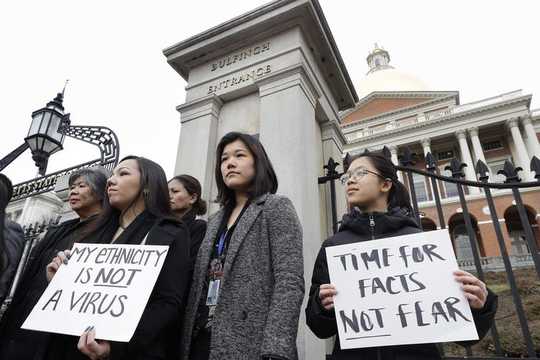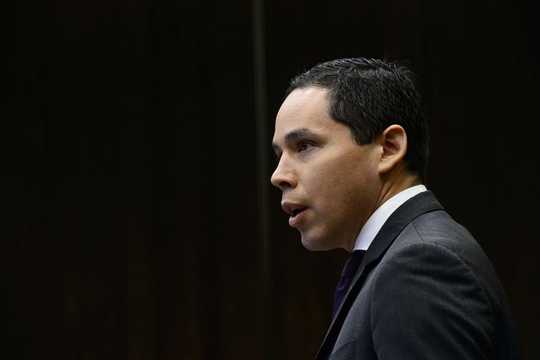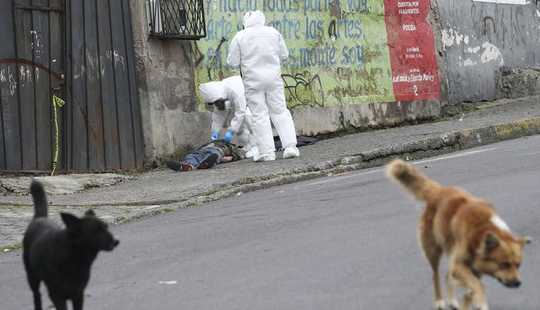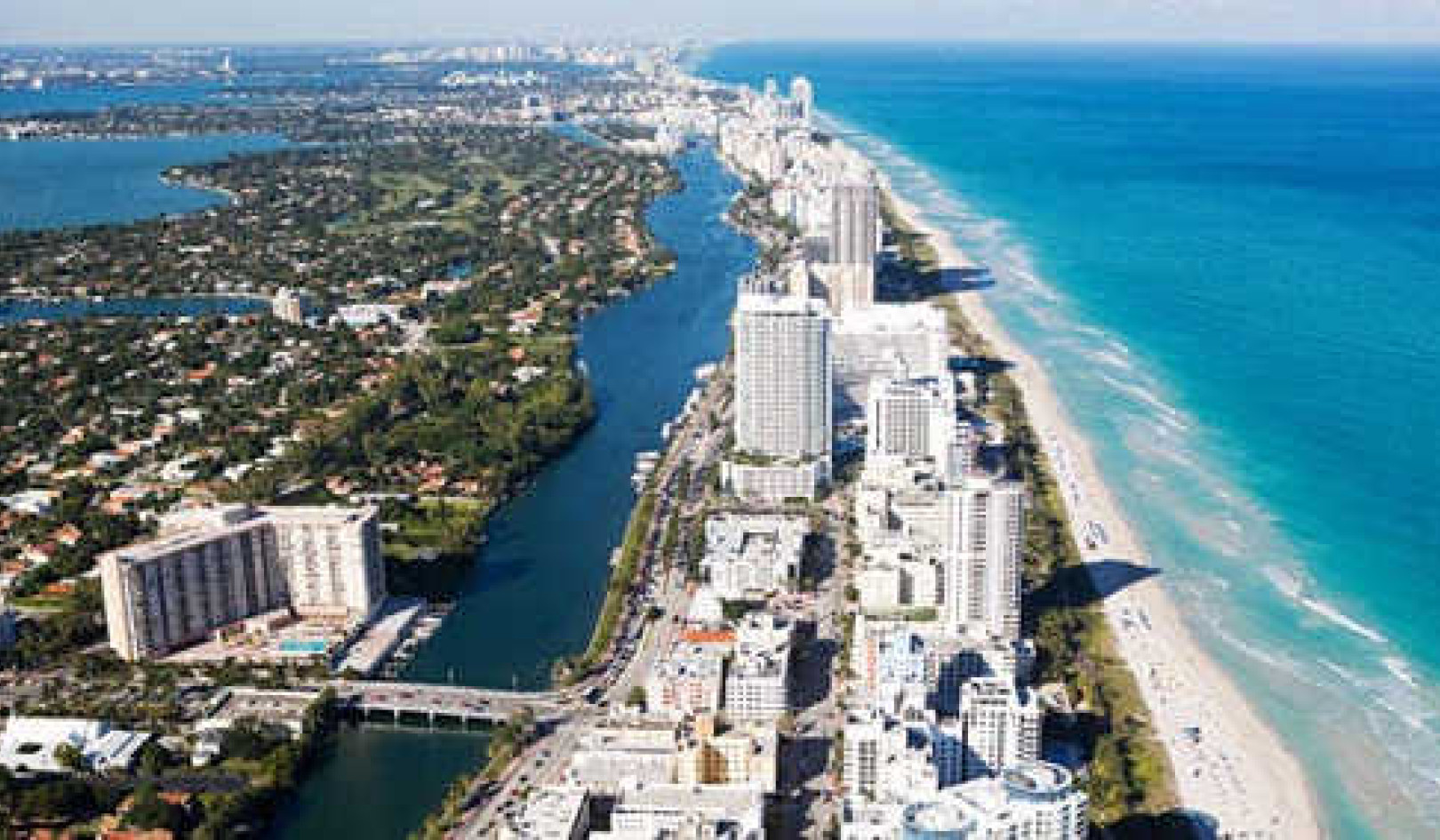 A young child stands outside the entrance to a playground in Montréal on May 3, 2020, as the COVID-19 pandemic continues in Canada and around the world. THE CANADIAN PRESS/Graham Hughes
A young child stands outside the entrance to a playground in Montréal on May 3, 2020, as the COVID-19 pandemic continues in Canada and around the world. THE CANADIAN PRESS/Graham Hughes
The world is enmeshed in a significant health crisis that stretches to all levels of society. Containing, controlling and remedying COVID-19 will require concerted efforts, and, importantly, significant social solidarity.
The daily briefings, quantitative graphs, projections, regulations, guidelines, datasets and profiles of those on the front lines, fighting the metaphorical “enemy,” implore us to consider what we might do after the coronavirus.
Although we’re still trying to make it through this pandemic, we should also be concerned about how much we really want to get back to what we regard as normal.
COVID-19 has shown us that there is an abundance of good will, harmony, humanity and solidarity in our society. And, conversely, there are also examples in this critically vulnerable time of violence against women, racist attacks against those of Asian origin, the hoarding of limited resources, the corrosive usage of stock-market gambling, unloading and profiteering and some other recalcitrant forces at work, including musings about testing the vaccine in Africa.
 Members of the Asian American Commission protest in March 2020 on the steps of the Massachusetts legislature in Boston over racism, fear-mongering and misinformation aimed at Asian communities amid the coronavirus pandemic. (AP Photo/Steven Senne)
Members of the Asian American Commission protest in March 2020 on the steps of the Massachusetts legislature in Boston over racism, fear-mongering and misinformation aimed at Asian communities amid the coronavirus pandemic. (AP Photo/Steven Senne)
Doctors, nurses and many other health professionals and workers are providing exceptional public health services. At the same time, it’s heart-wrenching to be confronted with the sad reality that many of the people providing essential services are compensated poorly — notably people working in seniors’ residences, daycares and grocery stores.
Within this context, I think it may be helpful to underscore three problems that have laid the groundwork for the present crisis and what I what refer to as societal fault lines: social inequalities, environmental intransigence and economic avarice.
My starting point is what preceded COVID-19 should not be considered normal. A vastly re-imagined society post-pandemic is not only desirable but necessary.
Fault line No. 1: Social inequalities
Social inequalities include generational poverty, racism, violence against women, homophobia, xenophobia and discrimination of all sorts.
To examine the life conditions, opportunities, health and education indicators and discrimination related to First Nations Peoples in Canada means acknowledging that, in 2020, the actions, behaviours and beliefs of the Canadian state and Canadian citizens have been highly destructive.
 Natan Obed, president of Inuit Tapiriit Kanatami, speaks in Ottawa in February 2019. The national organization that represents Inuit in Canada called for air transportation to be designated an essential service in Canada’s 51 Inuit communities for the duration of the COVID-19 pandemic. THE CANADIAN PRESS/Sean Kilpatrick
Natan Obed, president of Inuit Tapiriit Kanatami, speaks in Ottawa in February 2019. The national organization that represents Inuit in Canada called for air transportation to be designated an essential service in Canada’s 51 Inuit communities for the duration of the COVID-19 pandemic. THE CANADIAN PRESS/Sean Kilpatrick
Although not often interwoven into mainstream narratives of societal development, subjects like femicide, suicide (including, notably, among military personnel and veterans) and homelessness must also be addressed.
There must be consideration of a range of potential explanations for why society doesn’t fully examine and address these conditions and problems, including negligence, bad faith, ignorance, poor policy decisions, planned marginalization or even cultural genocide in the case of the First Nations.
Fault line No. 2: Environmental intransigence
The clock is ticking toward environmental destruction and catastrophe. We can see and feel the planet change as the climate heats up, oceans reach unforeseen levels, forests are destroyed, shorelines dissipate, islands disappear and ice caps melt into once-frozen waters.
We’re losing species, land and Indigenous cultures and languages, smoothing the way for environmental refugees, conflicts and famines.
Favouring economic development, warfare and unsustainable power structures over serious inclusive engagement and participation with all those who inhabit and share our planet has left us extremely vulnerable. It has also pit people, countries and regions against one another.
Fault line No. 3: Economic avarice
The mythology of “pulling yourself up by the bootstraps” works best when society is designed to break down class differentiations and inequities and is indifferent to dominant power structures.
 Forensic investigators prepare to remove the body of a man who died of COVID-19 infection in Quito, Ecuador, on May 5, 2020. (AP Photo/Dolores Ochoa)
Forensic investigators prepare to remove the body of a man who died of COVID-19 infection in Quito, Ecuador, on May 5, 2020. (AP Photo/Dolores Ochoa)
But the data around social class mobility shows we need to seriously question the belief that capitalism can and will work for everyone.
If we’re really all in this together, wealth accumulation through nefarious means, slavery, colonialism, imperialism and elitist collusion must be wiped out. Diversity in writing the rules and producing the media to bring about widespread social inclusion is essential.
Who benefits from off-shore banks? Who pays taxes and who accrues benefits from tax deferrals and credits? Why do bailouts systematically support banks, investors and speculators instead of those struggling to provide for their basic needs? Who goes to prison, who is over-policed and why is corruption so infrequently monitored and punished?
At least the fact that the minimum wage is inhumane, especially when considering the near-limitless wealth, privilege and control of the one per cent, has been brought to light through this pandemic.
Where to do we go from here?
In the midst of the pandemic, many people in Canada and around the world seem to have an appetite for a transformed social organization and society and a new world order.
That could mean a re-imagined human civilization that no longer prioritizes militarization, conflict, concentrated wealth in the hands of the few, massive social inequalities, environmental catastrophe, delusions of empire and colonization and fictitious notions of democratic freedom, engagement and participation.
The coronavirus is far from being the “great leveller,” as some have suggested.
It’s more like the “great imbalancer” that feeds off social and environmental injustice, exacerbating the wounds, scars and illnesses that existed prior to this pandemic.
That’s why the lessons learned during the pandemic must be used to reconsider and re-imagine social solidarity, one that’s hinged on education, democracy and social equality. Returning to “normal” is no longer a viable option.![]()
About The Author
Paul R. Carr, Full Professor, Département des sciences de l'éducation & Chair-holder, UNESCO Chair in Democracy, Global Citizenship and Transformative Education (DCMÉT), Université du Québec en Outaouais (UQO)
This article is republished from The Conversation under a Creative Commons license. Read the original article.

Related Books:
On Tyranny: Twenty Lessons from the Twentieth Century
by Timothy Snyder
This book offers lessons from history for preserving and defending democracy, including the importance of institutions, the role of individual citizens, and the dangers of authoritarianism.
Click for more info or to order
Our Time Is Now: Power, Purpose, and the Fight for a Fair America
by Stacey Abrams
The author, a politician and activist, shares her vision for a more inclusive and just democracy and offers practical strategies for political engagement and voter mobilization.
Click for more info or to order
How Democracies Die
by Steven Levitsky and Daniel Ziblatt
This book examines the warning signs and causes of democratic breakdown, drawing on case studies from around the world to offer insights into how to safeguard democracy.
Click for more info or to order
The People, No: A Brief History of Anti-Populism
by Thomas Frank
The author offers a history of populist movements in the United States and critiques the "anti-populist" ideology that he argues has stifled democratic reform and progress.
Click for more info or to order
Democracy in One Book or Less: How It Works, Why It Doesn't, and Why Fixing It Is Easier Than You Think
by David Litt
This book offers an overview of democracy, including its strengths and weaknesses, and proposes reforms to make the system more responsive and accountable.























